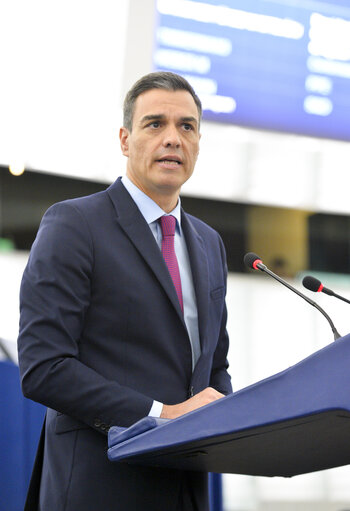Antoni Abat I Ninet & Jorge Piñera Álvarez (Institut d’Estudis Europeus, Universitat Autònoma de Barcelona)
After months of political negotiations between the Socialist party and the secessionist parties of Catalonia (Junts Per Catalunya and Esquerra), Pedro Sánchez obtained the necessary support to be proclaimed Prime Minister and to form a new government. These negotiations included at least one meeting between Santos Cerdán on behalf of the Socialist party and Carles Puigdemont, the former Catalan President and EU MEP wanted by the Spanish authorities.
The conditions imposed by the Catalan parties included, as major and controversial aspects, a proposal for an organic law of amnesty for institutional, political, and social normalisation in Catalonia, granting amnesty for administrative, penal, and accounting acts that occurred in Catalonia as a result of the self-determination referendum on October 1st, 2017. Other conditions comprised the forgiveness of the debt of the autonomous communities with the state, amounting to 15,000 million euros in the case of Catalonia; the official recognition of the Catalan language in the Spanish Parliament and in European institutions; and the transfer of control of the Regional railway to the Catalan institutions, a competence that was already agreed to be transferred in the Catalan statute of autonomy.
It is predictable that the Spanish government is going to have a tumultuous legislature, with fierce opposition from the right party (Partido Popular), the winning party in votes in the last electoral contest, and with the far-right accusing the government of performing a coup d’état, breaching the separation of powers, and consequently breaking Spain. According to the right wing, Spain has been broken at least five times since 1976, and now we are facing a new rupture.
The expectations in Catalonia can be a grosso modo portrait in four sectors of the population; a first sector (optimist secessionist) hoping that a new political process will be opened to obtain a dialogical solution with Spain. The steps towards the approval of the amnesty law and the implicit recognition of the existence of a political conflict will end in a consultation on the Catalan status within Spain; the recognition of the Catalan language as official at the Spanish Parliament and the new proactive attitude and factual action of the Spanish government to achieve the recognition of the Catalan language in the EU are, for this group, arguments to sustain this rationale. A second sector of population considers (federalists) that the Spanish and Catalan relations are going to be improved without requiring a referendum. This sector will sustain that in contrast to the political stance of 2017, nowadays there is a more fluid dialogue among the parties, less political tension between Catalans and a synergy with the Spanish left and socialist parties is fuelled by the existence of a common political adversary. There is a third sector, a kind of nihilist position, represented by those who believe that no important change in relation to the Catalan accommodation within Spain is going to happen and the political and judiciary persecution will not significantly shift. Finally, there is also a segment of Catalans that can be defined as dramatic, believing we are experiencing a coup d’état with unknown political consequences that could include a military intervention or the secession of Catalonia and consequently the rupture of Spain.
It is challenging to predict what will happen in this potentially very turbulent and polarised mandate in Spain. The consequences in Catalonia cannot be, in any case, at least so far, detached from the Spanish political conjuncture. However, this conjuncture depends on the political position that Catalan secessionist parties will take: pragmatism vs. conflict.
Copyright: © European Union 2019 – Source : EP
The views expressed in this blog reflect the position of the author and not necessarily that of the Brexit Institute Blog.



